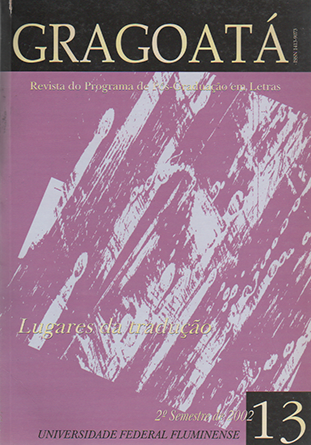Positions, competence and functions of literary translation
Keywords:
Literary translation, Translation policies, Translation studies, Translator's visibility.Abstract
This article intends to put forward some theoretical positions about literary translation that situates the translational process into a special frame of competences, objectives and purposes, undoing the reproductive characteristics given to it in the past. Moreover, it underlines the autonomy of literary translation and the historical, political and cultural part it plays, being propitious to discuss the Western Canon in a post-colonial context. Another aspect that was focalized is the relevance of the translator's visibility as a cultural mediator.
Downloads
Downloads
Published
How to Cite
Issue
Section
License
Authors who publish in Gragoatá agree to the following terms:
The authors retain the rights and give the journal the right to the first publication, simultaneously subject to a Creative Commons license CC-BY-NC 4.0, which allows sharing by third parties with due mention to the author and the first publication by Gragoatá.
Authors may enter into additional and separate contractual arrangements for the non-exclusive distribution of the published version of the work (for example, posting it in an institutional repository or publishing it in a book), with recognition of its initial publication in Gragoatá.

Gragoatá is licensed under a Creative Commons - Attribution-NonCommercial 4.0 International.











